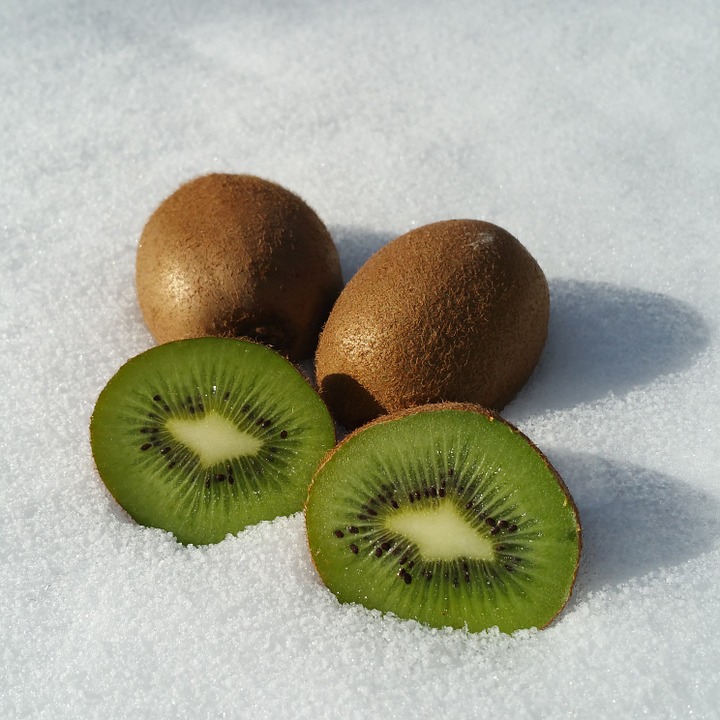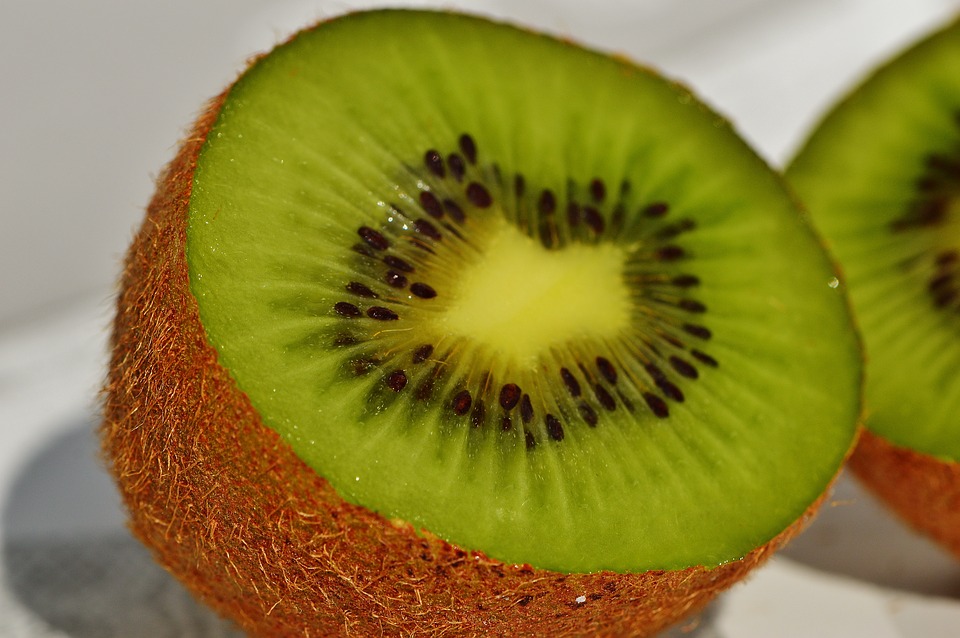The question of whether rabbits can safely indulge in the tangy goodness of kiwi fruit is a common one among bunny owners. While kiwi fruit offers a range of nutritional benefits, it's crucial to understand the potential risks and how to safely introduce this fruit into your rabbit's diet, if at all. This article aims to provide a comprehensive guide to help you make informed decisions about kiwi fruit and your furry companion's health.
Part 1: The Nutritional Composition of Kiwi Fruit

1.1. Vitamin C - A Powerful Antioxidant
Kiwi fruit is a veritable powerhouse of vitamin C, a potent antioxidant that plays a crucial role in supporting the immune system, collagen production, and wound healing. A single kiwi can provide a significant portion of the daily vitamin C requirement for both humans and rabbits.
1.2. Fibre for Digestive Health
Kiwis are rich in dietary fibre, both soluble and insoluble. Fibre is essential for maintaining a healthy digestive system in rabbits. It aids in the efficient passage of food through the digestive tract, preventing constipation and other digestive issues.
1.3. Potassium for Electrolyte Balance
Kiwi fruit is a good source of potassium, an essential mineral that plays a crucial role in maintaining electrolyte balance, muscle function, and nerve transmission. It also helps regulate blood pressure.
1.4. Folate for Cell Growth and Development
Kiwis contain folate, a vital B-vitamin essential for cell division, growth, and DNA synthesis. Folate plays a crucial role in the development of red blood cells, which are responsible for carrying oxygen throughout the body.
1.5. Other Essential Nutrients
Beyond vitamin C, fibre, potassium, and folate, kiwi fruit contains other beneficial nutrients, including:
- Vitamin K: Important for blood clotting and bone health.
- Vitamin E: An antioxidant that protects cells from damage.
- Magnesium: Essential for muscle function, nerve function, and bone health.
Part 2: Risks Associated with Feeding Kiwi to Rabbits

2.1. The Sugar Conundrum
While kiwi fruit is packed with nutrients, it also contains a significant amount of natural sugars. Excessive sugar intake can lead to various health problems in rabbits, including:
- Weight gain: Increased sugar intake can contribute to obesity, which can strain the heart, joints, and other organs.
- Dental issues: Sugar can promote bacterial growth in the mouth, leading to tooth decay and dental problems. Rabbits have continuously growing teeth that need to be worn down by chewing on hay, which is why a high-fibre diet is essential.
- Increased risk of diabetes: High sugar intake can increase the risk of developing diabetes, a serious condition that affects the body's ability to regulate blood sugar levels.
2.2. Acidity and Digestive Upset
Kiwi fruit is acidic, which can potentially irritate a rabbit's sensitive digestive system. This can lead to digestive upset, diarrhoea, gas, and other gastrointestinal issues.
2.3. Potential for Bloating
The high fibre content in kiwis, while beneficial for digestion, can also contribute to bloating in rabbits if consumed in excess. Bloating can be uncomfortable and potentially dangerous, especially for young or older rabbits.
2.4. Allergic Reactions
While rare, rabbits can have allergic reactions to certain fruits, including kiwi. Signs of an allergic reaction can include:
- Sneezing
- Itching
- Hives
- Diarrhoea
- Vomiting
Part 3: Potential Benefits of Kiwi for Rabbits
3.1. Digestive Support and Regularity
The fibre content in kiwi fruit can aid in maintaining a healthy digestive system for rabbits, promoting regular bowel movements and preventing constipation.
3.2. Immune System Boost
The high vitamin C content in kiwi can support a rabbit's immune system, making them more resilient to illness. Vitamin C helps boost the production of white blood cells, which are essential for fighting infections.
3.3. Antioxidant Protection
Antioxidants in kiwi fruit can help protect cells from damage caused by free radicals, which are unstable molecules that can contribute to aging and disease.
Part 4: Introducing Kiwi to Your Rabbit's Diet
4.1. Moderation is Paramount
If you decide to introduce kiwi to your rabbit's diet, it is crucial to do so in moderation. A general guideline is to offer no more than a small piece, about the size of a grape, once or twice a week.
4.2. Preparation is Key
Always peel and deseed kiwi fruit before offering it to your rabbit. The skin and seeds can be difficult to digest and pose a choking hazard. You can also choose to cut the fruit into smaller pieces to make it easier for your rabbit to consume.
4.3. Gradual Introduction
Introducing new foods to your rabbit's diet should always be done gradually. Start with a small amount of kiwi and observe your rabbit's reaction. If they show no signs of digestive upset, you can gradually increase the amount over several days.
4.4. Monitoring for Adverse Reactions
It's essential to closely monitor your rabbit for any signs of digestive upset after introducing kiwi. This includes diarrhoea, bloating, gas, lethargy, or loss of appetite. If you observe any of these signs, discontinue feeding kiwi and consult with your veterinarian.
Part 5: Alternatives to Kiwi Fruit
5.1. Other Fruit Options
Rabbits can enjoy other fruits in moderation, including:
- Apples: Choose small pieces of apples, removing the core and seeds, as these can be difficult to digest.
- Bananas: Offer bananas in small quantities, as they are high in sugar.
- Strawberries: These berries are a good source of vitamin C and antioxidants.
- Blueberries: Blueberries are also a good source of antioxidants and provide some fibre.
5.2. Hay and Greens as Dietary Staples
The majority of your rabbit's diet should consist of hay and fresh greens. These provide the essential nutrients and fibre that are vital for their health.
- Hay: Hay should be the primary food source, making up about 80% of their diet. It helps maintain proper digestion and wears down their teeth.
- Greens: Fresh, leafy greens provide essential vitamins and minerals. Choose a variety of greens, such as romaine lettuce, parsley, cilantro, and kale.
Part 6: FAQs
6.1. Can Baby Rabbits Eat Kiwi?
It's generally not recommended to feed kiwi to baby rabbits as their digestive systems are still developing and more sensitive. Stick to a diet of hay and greens until they are a few months old.
6.2. How Often Can Rabbits Eat Kiwi?
If you decide to feed kiwi to your rabbit, it should be offered only as an occasional treat, no more than once or twice a week.
6.3. What if My Rabbit Has Already Eaten Kiwi?
If your rabbit has already eaten a small amount of kiwi and seems fine, there is likely no cause for concern. However, monitor them closely for any signs of digestive upset.
6.4. Can Rabbits Eat Kiwi Skin?
No, rabbits should not eat kiwi skin. The skin is difficult to digest and can pose a choking hazard. Always peel kiwi fruit before offering it to your rabbit.
6.5. Can Rabbits Eat Kiwi Seeds?
No, rabbits should not eat kiwi seeds. The seeds are also difficult to digest and can pose a choking hazard. Always deseed kiwi fruit before offering it to your rabbit.
6.6. What Should I Do if My Rabbit Shows Signs of Digestive Upset After Eating Kiwi?
If your rabbit shows signs of digestive upset, such as diarrhoea, bloating, or lethargy, stop feeding them kiwi and consult with a veterinarian. They can provide advice on how to manage the situation and ensure your rabbit's well-being.
6.7. Can Kiwi be Harmful to Rabbits with Existing Health Conditions?
Rabbits with existing health conditions, such as diabetes, obesity, or digestive issues, may need to avoid kiwi fruit altogether. Consult your veterinarian to determine the best dietary approach for your rabbit's specific needs.
6.8. Is There a Specific Type of Kiwi That is Better for Rabbits?
There is no specific type of kiwi that is considered safer for rabbits than others. All varieties contain sugar and acidity, so moderation is key regardless of the type.
Everyone is watching
-

Do Rabbits Lay Eggs? (The Surprising Truth)
OTHER TYPES OF PETSThis article will unravel the common misconception that rabbits lay eggs, exploring the fascinating world of r...
-

Can Rabbits Eat Grapes? A Guide to Safe Rabbit Treats
OTHER TYPES OF PETSThis comprehensive guide will explore the safety and suitability of grapes for rabbits, providing detailed inf...
-

What's a Group of Rabbits Called? (A Comprehensive Guide)
OTHER TYPES OF PETSThis article delves into the fascinating world of rabbits, exploring the various terms used to describe a grou...
-

Predators That Hunt Rabbits: A Guide to Natural Enemies
OTHER TYPES OF PETSI've always been fascinated by the circle of life, that delicate dance between predator and prey. Growing up ...
-

Are Rabbits Nocturnal Animals?
OTHER TYPES OF PETSThe question of whether rabbits are nocturnal animals is a fascinating one, with a surprisingly complex answer...
